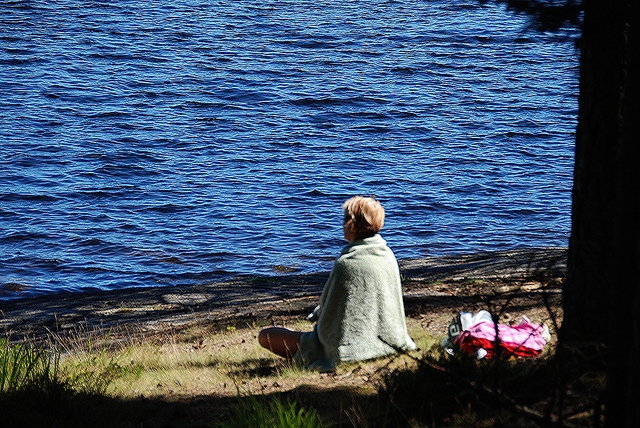I recently had an opportunity to introduce mikveh to a couple who were getting married, one of whom is not Jewish. We had to get a little creative with our mikveh venue as this is something that not even the most inclusive community mikva’ot (Hebrew plural of mikveh) currently makes possible. While I am understanding of that boundary, I am also more and more convinced of the gift and possibility that comes with creating better opportunities for those who come from a different religious or cultural heritage to experience Jewish ritual. Within Clal, a project initiated by Rabbi Irwin Kula in which a number of my colleagues are involved is looking at Jewish rituals and mitzvot (commandments) as tools that enable human flourishing. Borne out of the language of positive psychology, this posits the idea that Jewish ritual and practice that helps support meaningful living in supportive and life-enhancing ways will have particular significance as ongoing parts of Jewish practice and identity.
I realized, in reflecting on the recent conversation that I had had about mikveh, that there are many ways in which I see the truth of this notion playing out. For a couple who has chosen to spend time with a rabbi to prepare for their wedding day, seeking pastoral support and counseling as they reflect on their lives together and with their families or origin, mikveh makes as much sense to an interfaith couple as two Jews. In its contemporary usage, especially among progressive Jews, it is a powerful way to take stock of the self who is entering the marriage, the hopes for the future, and perhaps a letting go of things from the past that may not serve the relationship well in the future. It does a powerful job in a moment that leads up to a major life transition.
Likewise, in speaking with a number of members of my congregation who are not Jewish but are part of Jewish families raising Jewish children, I learned of other Jewish rituals that have had particular power to them. One woman, still practicing Catholicism individually while also having been very present with her Jewish family in a congregation for almost 30 years, described the power of saying Kaddish for her parent. Initially, she responded to the congregation’s invitation to add the name to their lists so that her children, being raised as Jews and young at the time, could mourn for their grandmother. But the experience led to a decades-long tradition of wanting to be present each year when the Yarzheit comes around.
Like a number of Reform congregations, we engage in a relatively modern ritual of passing a Torah down the generations and into the arms of a bar or bat mitzvah on the day that they celebrate reaching that age and help to lead a Shabbat morning service. I have always invited a non-Jewish parent to be a fully part of that moment, acknowledging that without their participation, consent and support, their child would not be continuing the line. It is a moving moment for both parents, but I have often seen the emotion in the face of a non-Jewish parent who is acknowledged by their rabbi for the role they have played in the continuity of Jewish heritage.
There are more examples, and others where the conversation requires more nuance because of words being recited or inherent meaning of a specific ritual, where it may not be quite so easy or appropriate to be fully inclusive. But we live in a time, especially evident in Reform and other progressive congregations, that are attractive to interfaith families because of their welcoming and inclusive policies, where the face of our congregations has changed dramatically over the last several decades. We need not compromise our practices and be any less Jewish in how we pray, celebrate, and live our Judaism. But there are a great many who have chosen or agreed to make our communities their spiritual homes, often to exclusion of any other. Some may convert but others may remain resident among us without taking that additional step. What is gained by not teaching and sharing our practices? There is more we can do to open up the beauty of our tradition and the meaningfulness of our ritual practices to all who call a Jewish community their home.
Yahrzeit
Pronounced: YAHR-tzite (long i), Origin: Yiddish, anniversary of a death on the Jewish calendar.


